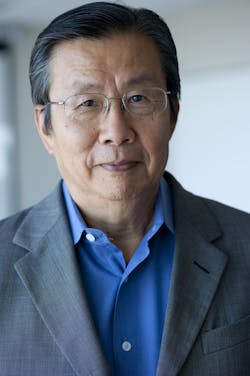
Q What is wrong with “a technology looking for a solution” if my laser technology is really great?
A Coming up with a great laser application is a good thing regardless of the starting point. The concern is “the hammer sees everything as a nail” tendency to apply what you like to do. At the end of the day, customers are not wedded to any given technology but choose what works best for them. So, think of yourself first as an engineer who happens to have lasers in your tool kit. An engineer by implication comes up with solutions with ingenuity.
Q I am shocked by high legal costs. What are the tradeoffs in going to a smaller, less expensive law firm?
A The principle to keep in mind here is always to always work with the best because the consequences of a job poorly done can far outweigh the savings. The service you get is a function of the individual lawyer you work with. More often than not, small firms do not have the clout or the resources to provide the quality service you can potentially get from a big firm. I say “potentially” because as a start-up company, you may well be assigned to a junior lawyer who is getting on-the-job training. The tradeoff there is the difference in hourly rate, but experienced lawyers are more likely to have the self-confidence to get to the relevant issues faster and actually cost you less. You can also significantly cut your legal expenses by reducing the work the lawyer must do, for example, by doing a better job gathering background material yourself.
As a startup, you need all the help you can get. Having a prestigious lawyer can lend credibility and can enable you to tap into a higher level of contacts, not to mention the horsepower he or she can provide in negotiating deals alongside you. However, good lawyers are in short supply and you may have to put your best foot forward to impress them before they will take you on as a client.
Q How do I as an engineer build a network of contacts to help me when I start a company someday?
A Building a network means getting to know a wide range of people and developing relationships with them to draw upon as resources because you need to address a wide range of issues in business. My instinctive response to your question is to suggest that you reach out to participate in community activities in your neighborhood, churches, PTA, hobby clubs, etc. to get to know people. There, you get to meet people from all walks of life who you will not normally meet on the job in a structured hierarchical setting.
On second thought, the fact that you asked this question could mean that reaching out is not something you are naturally inclined to do. Assuming that’s the case, you may want to focus on building relationships with fewer people and know them well enough to draw upon their network. A general belief is that you can reach just about anyone on Earth after several introductions. Like you, as a young man I was uncomfortable outside the circle of people I knew in the university. My professor provided the introduction to get my first job, and later a fellow graduate student in the same group called me to join his start-up company. Then I got to know bankers, accountants, and lawyers who introduced me to other professionals. Still, I stuck to my comfort zone and became active in professional societies like OSA, LEOS, LIA, and SPIE where interactions are mostly with technical people. There, working on committees as a volunteer, I met a broad range of incredibly capable people who work in all capacities in technical businesses. When I took an executive management course, I got to know about 100 business owners which gave me contacts to a wide range of businesses and also a whole new outlook on life. So, you can similarly build a network in a concentric-circle fashion to expand in scope over time.
About the Author
Milton Chang
MILTON CHANG of Incubic Management was president of Newport and New Focus. He is currently director of mBio Diagnostics and Aurrion; a trustee of Caltech; a member of the SEC Advisory Committee on Small and Emerging Companies; and serves on advisory boards and mentors entrepreneurs. Chang is a Fellow of IEEE, OSA, and LIA. Direct your business, management, and career questions to him at [email protected], and check out his book Toward Entrepreneurship at www.miltonchang.com.
